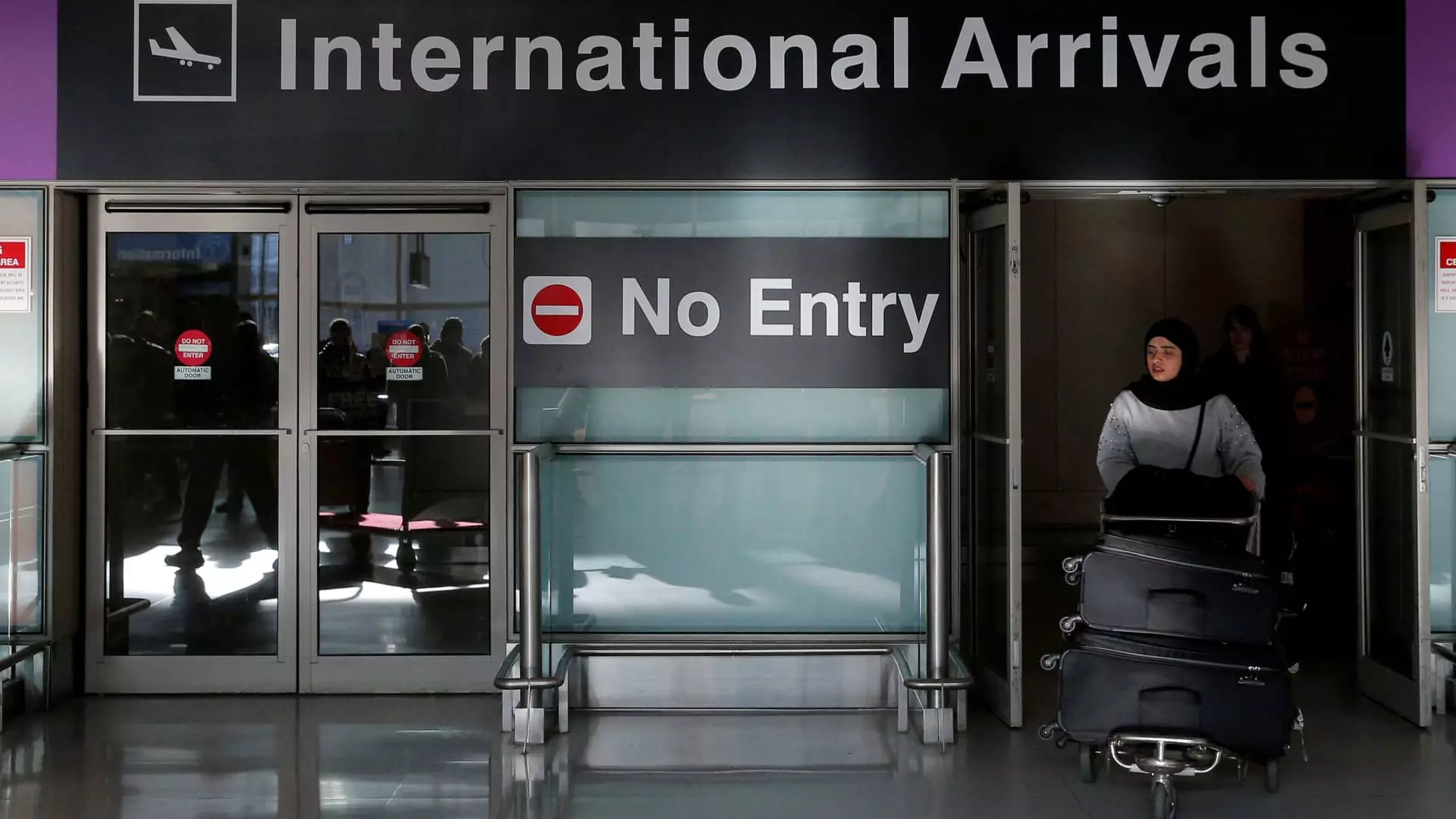The recent travel ban introduced by President Donald Trump represents a chilling continuation of the administration’s aggressive immigration policies, targeting individuals from 12 predominantly African and Middle Eastern nations. By effectively shutting the door to citizens from Afghanistan, Myanmar, Chad, and others, the administration sends a clear message: specific communities are deemed unwelcome in the land of opportunity. This ban, while touted as a measure of national security, instead exposes an underlying agenda that fosters hostility and division within our societal fabric.
The timing of this ban is not coincidental. As the nation grapples with its identity, the Trump administration has seized the opportunity to wield immigration as a political weapon. The narrative crafted around this policy focuses on fear—insisting that those hailing from certain countries represent terrorism and violence. What’s often overlooked is the essential human element. These are not simply statistics or potential threats; they are families and individuals fleeing persecution, seeking refuge from violence, and hoping to build a better life. The stories shared by individuals such as Elvanise Louis-Juste, a Haitian-American, highlight that for many, coming to the U.S. is a matter of survival, not just a desire for a more prosperous existence.
Dissecting the Administration’s Rationale
Trump’s justification for the travel ban hinges on safety concerns tied to terrorism and visa overstays. However, the reliance on specific, selective data casts doubt on this narrative. The correlation made between visa overstays and threats does not hold water when viewed in context. The ban singles out nations with high visa overstays but ignores that the vast majority of individuals seeking to enter the U.S. do so with legitimate intentions and have every reason to comply with the terms of their entry. Comparing the tragic incident in Boulder, where the accused is from Egypt yet not targeted by this ban, amplifies the absurdity of the rationale. It illustrates the administration’s preference for sensationalizing the threat rather than addressing the broader complexities of immigration and homegrown violence.
Most alarming is the potential normalization of discrimination under the guise of security. Treating specific countries as breeding grounds for danger is not only reductive but also profoundly dangerous. It perpetuates a stereotype that can have real-world consequences for innocent individuals simply seeking asylum. The narrative of blame focused on entire countries and communities reflects a troubling shift towards xenophobia—a trait that should be antithetical to American values.
Community and Civil Society Responses
In the face of this unjust policy, civil society has been vocal in its condemnation. Nonprofit organizations and advocacy groups emphasize that this ban serves not to protect but to stigmatize communities looking to find safety and opportunity in what is experimentally still known as a melting pot of nations. Organizations such as Oxfam America aptly argue that this approach deepens division within society at a time when unity is more essential than ever.
Critics argue this ban does not address the systemic failures within the immigration system and instead adopts a punitive approach that reinforces barriers. It’s crucial to recognize that effective immigration policy does not stem from isolationism but rather from comprehensive reform that acknowledges the complexities of migration patterns, economic contributions of immigrants, and the glaring humanitarian crises many flee from.
The ban has also prompted backlash from international leaders, further illustrating the adverse effects of this isolationist stance. Through its actions, the Trump administration risks not only tarnishing America’s image on the global stage but also diminishing the values that have historically drawn immigrants to its shores—a land perceived as a sanctuary.
Crisis of Identity and Values
Ultimately, the travel ban serves as a litmus test for American values. Are we to become a nation that thrives on fear, or can we summon the courage to remember our foundational ideals of inclusivity and opportunity? The consequences of endorsing such a policy extend beyond immediate travel restrictions; they invite a culture of suspicion and alienation that undermines our fabric as a diverse society. It presses us to ask the more significant question: What kind of nation do we wish to be? The answer should be one that prioritizes humanity over division, compassion over fear, and a responsive immigration policy that recognizes the intrinsic value of every individual seeking a new beginning.

Leave a Reply